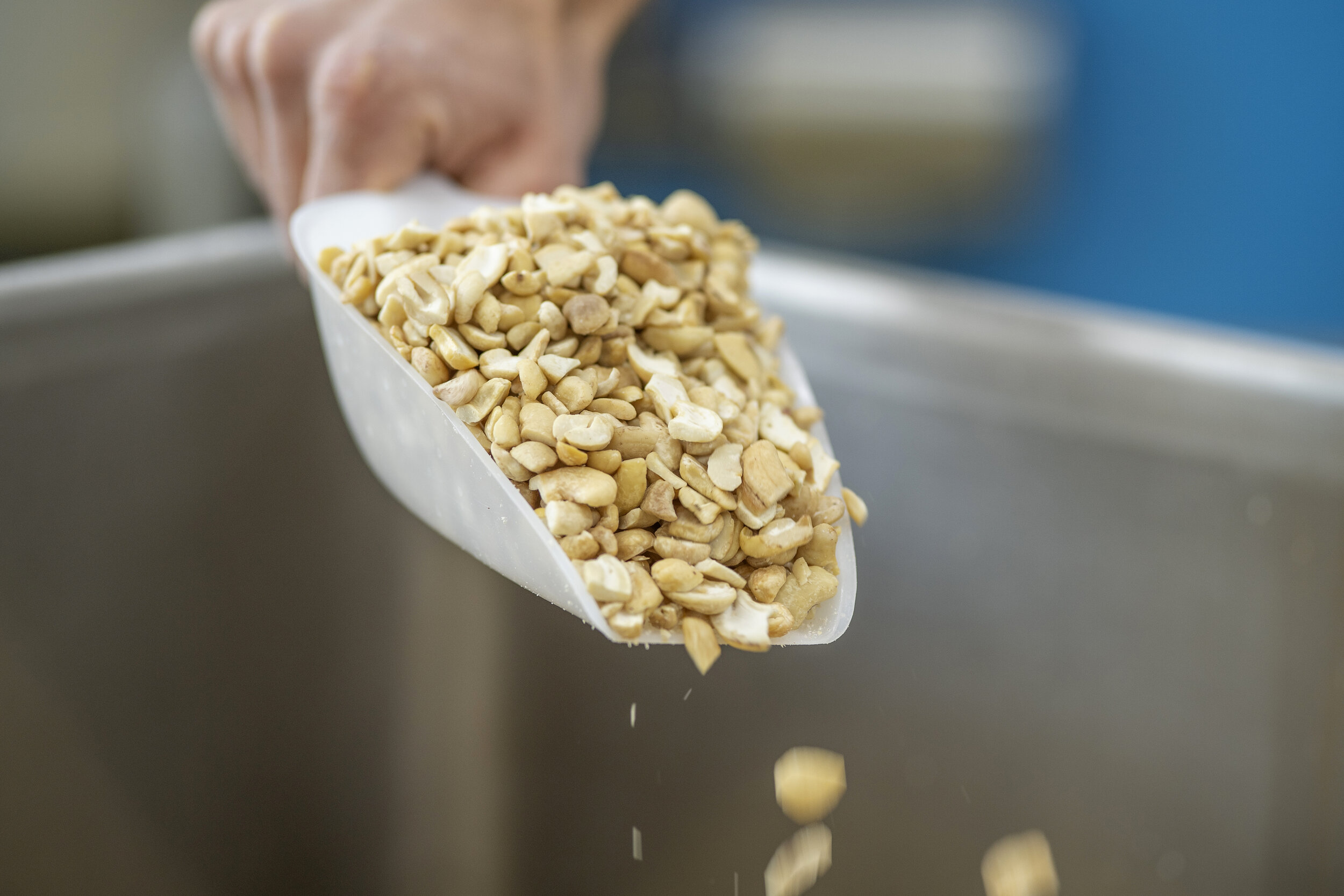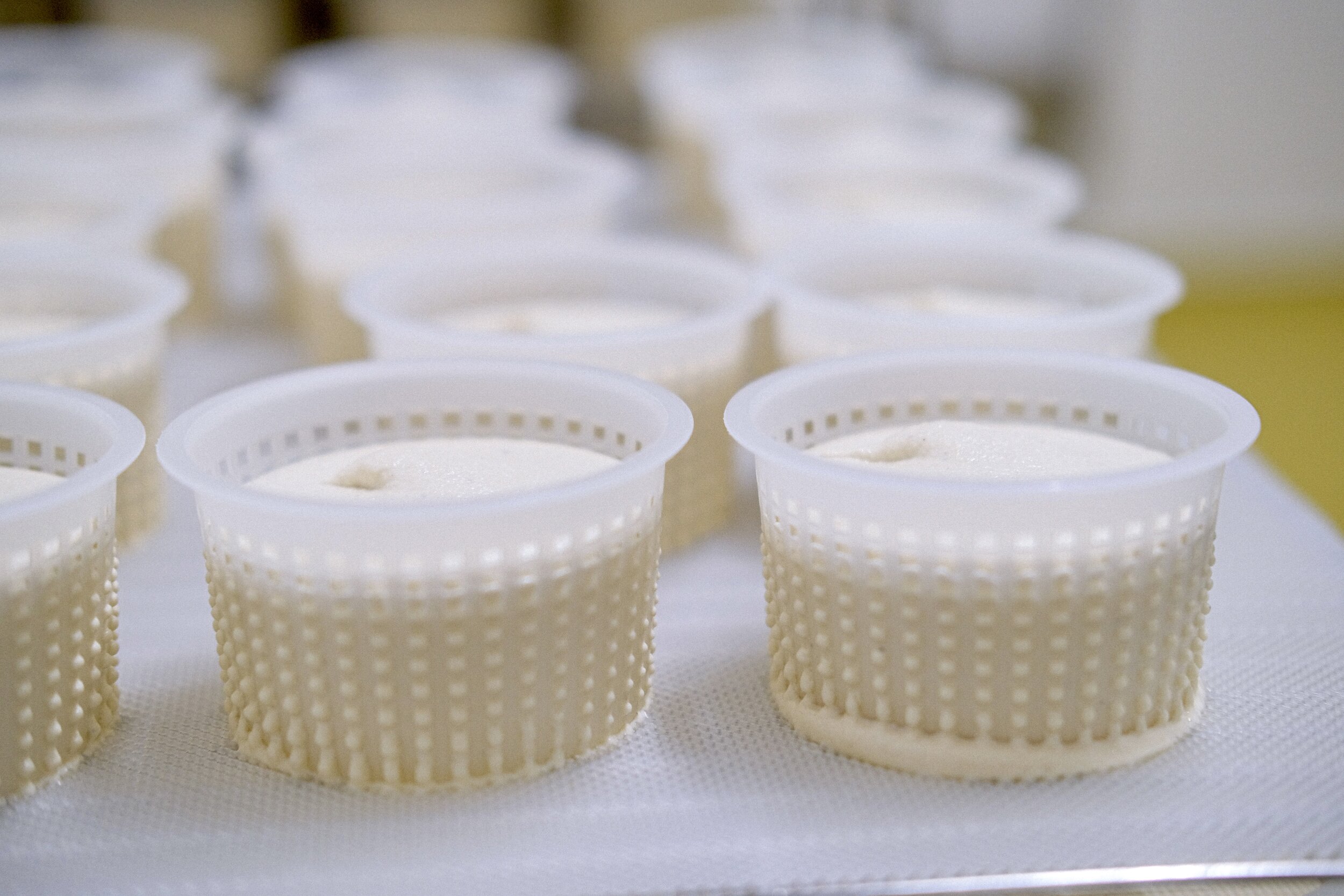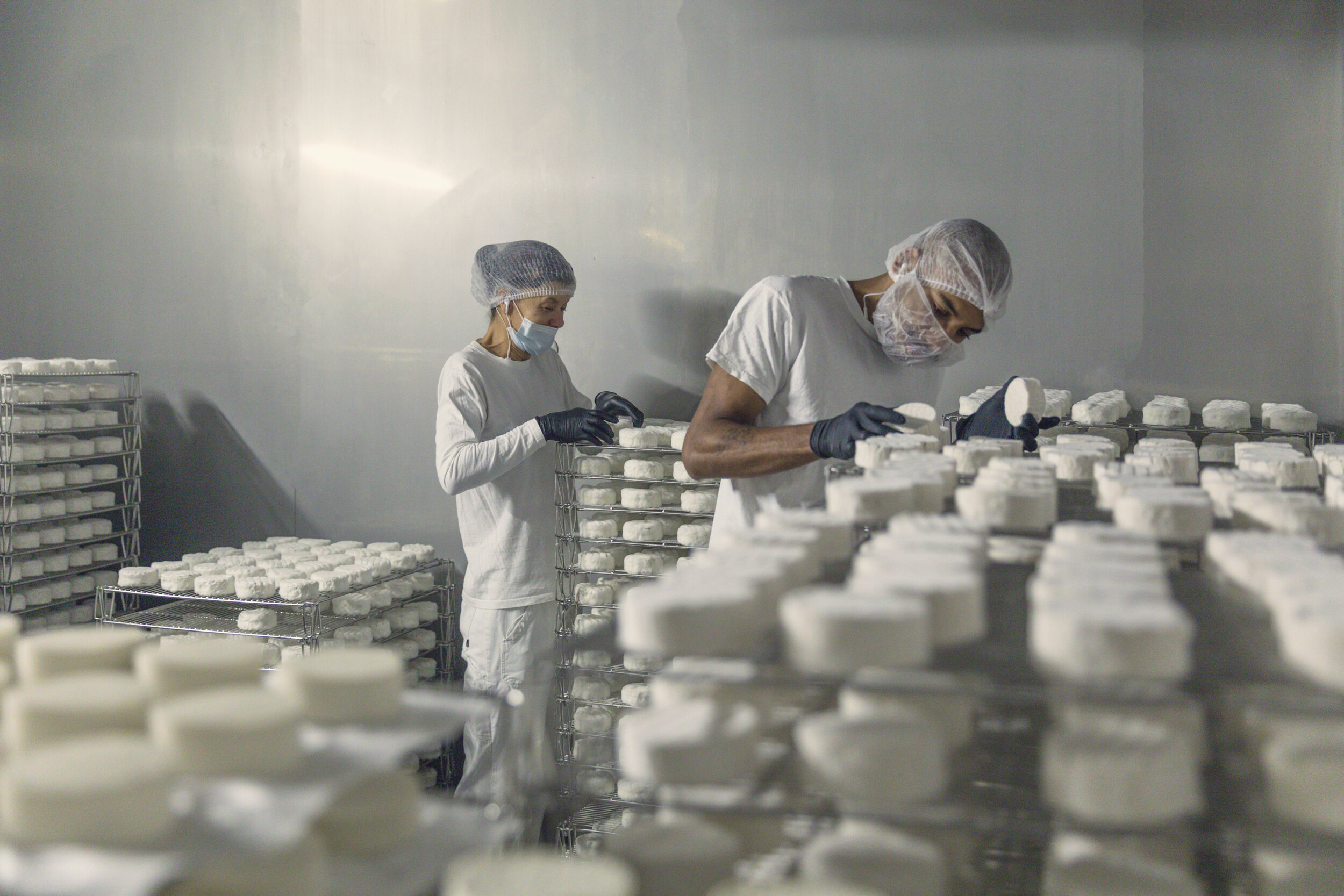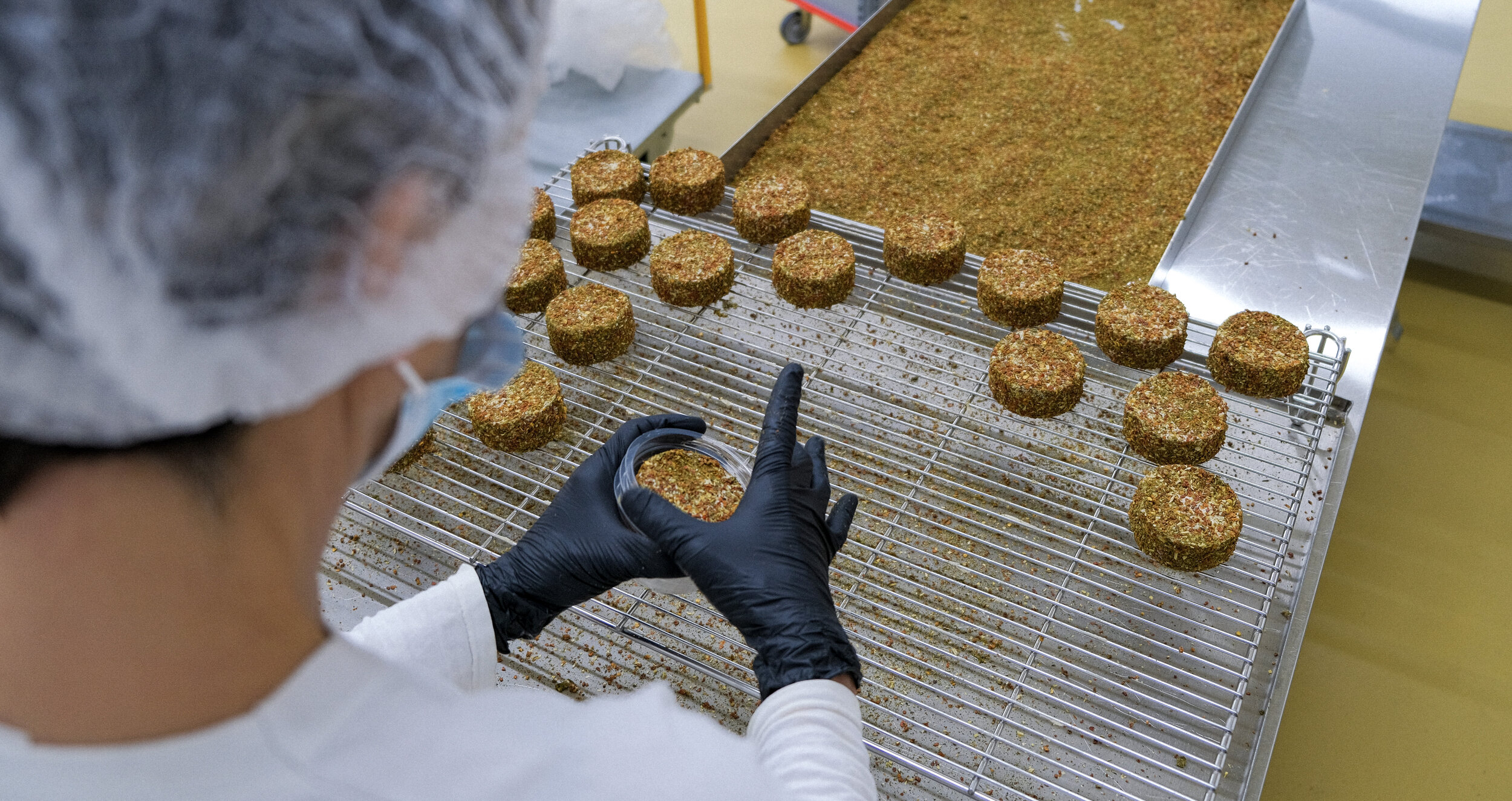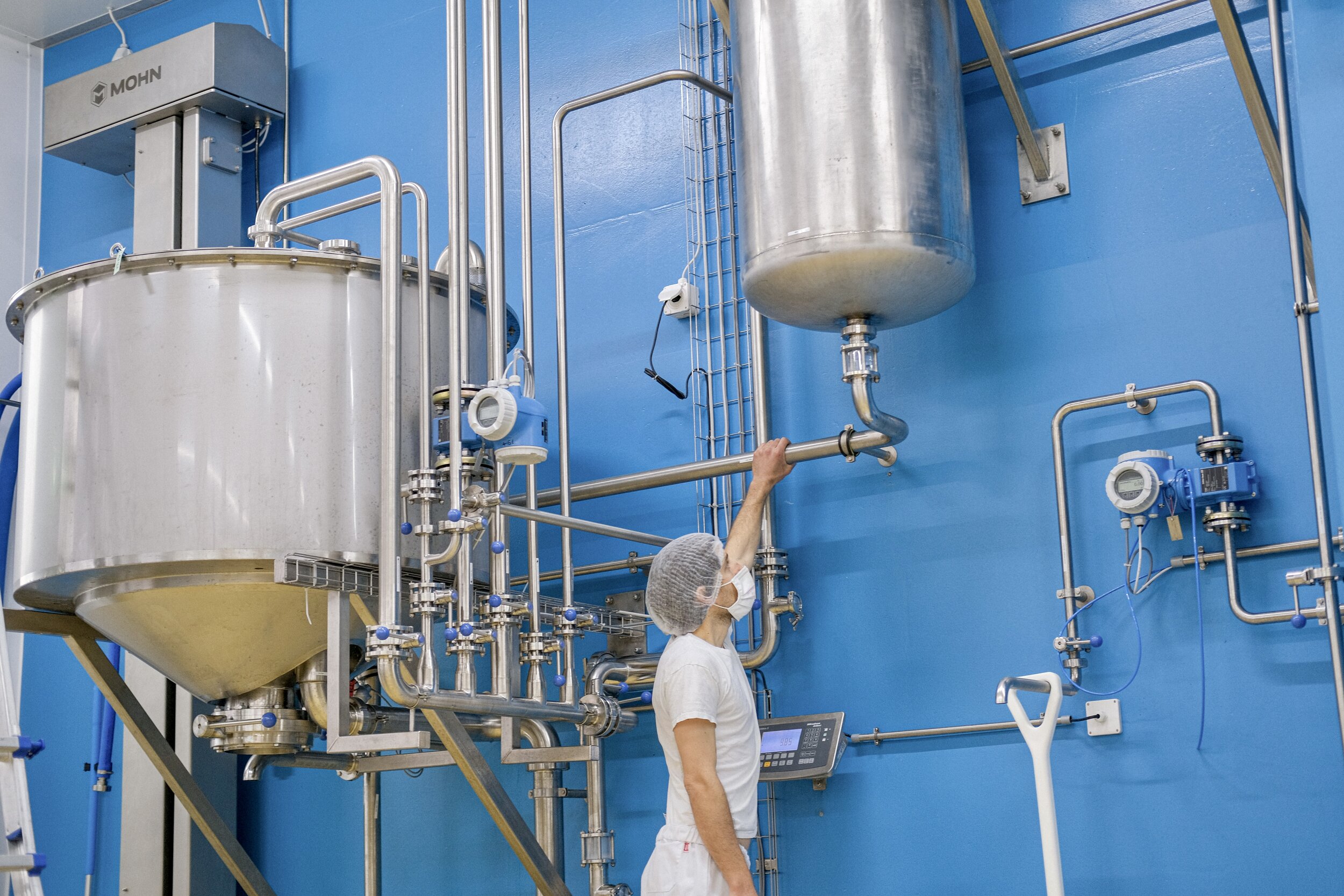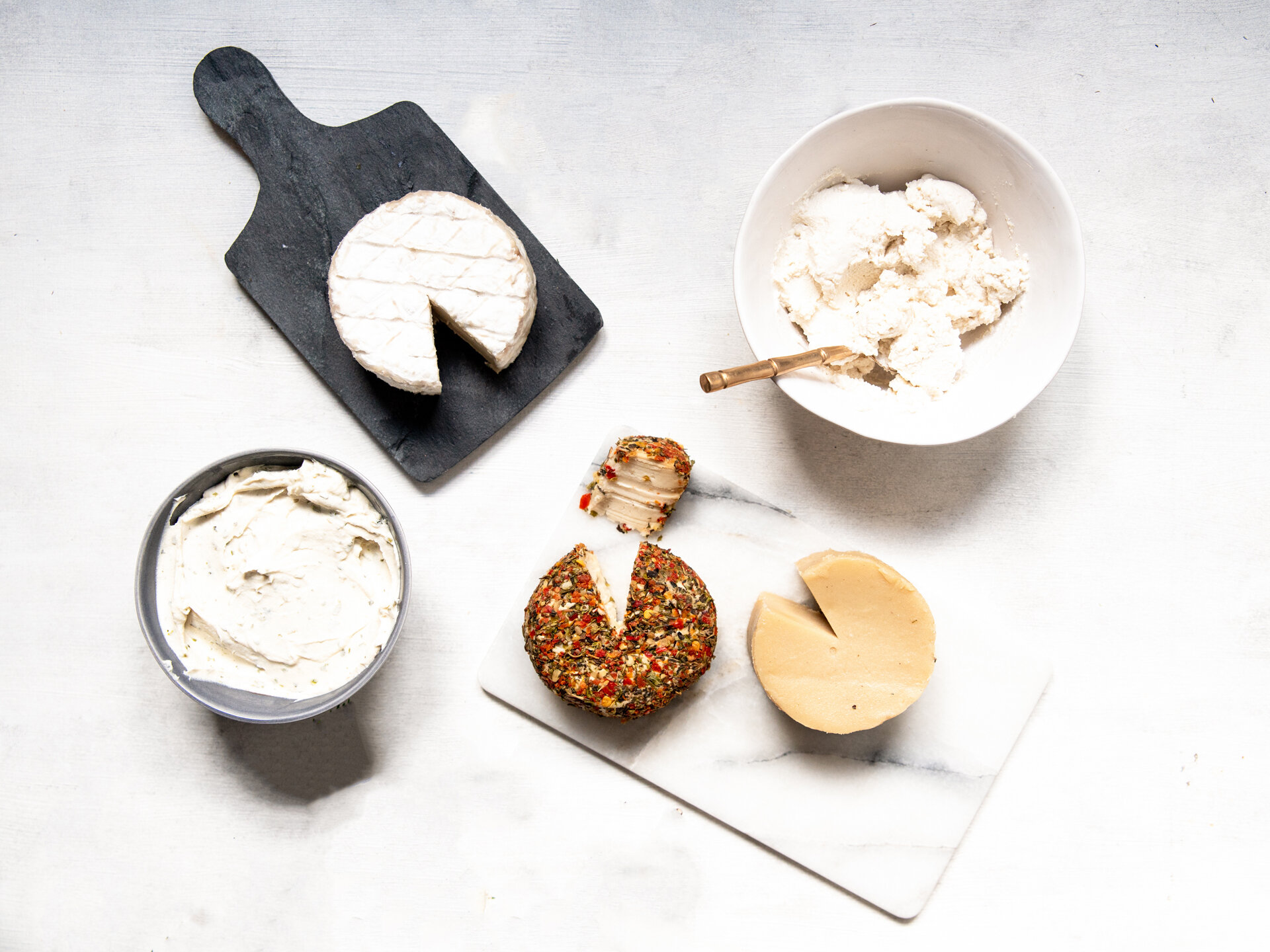"FOOD2050 allows us to educate customers on the sustainability of plant-based alternatives."
Freddy Hunziker, CEO New Roots AG (Photo Copyright: New Roots)
Cashew instead of animal milk: New Roots wants to invent new traditions and combines traditional Swiss cheese-making craftsmanship with innovative plant-based ingredients. Freddy Hunziker, 28, a trained polymechanic and founder of New Roots, switched to a plant-based diet eight years ago and has been pursuing his beliefs and values of transparency, sustainability and ethics professionally since 2015.
How do you explain what you are doing with New Roots for a sustainable future?
We want to make it easier for as many people as possible to switch to a plant-based diet by making delicious vegan cheeses and yogurts with just a few natural, organic ingredients. Simply put, a plant-based diet is more sustainable, ethical and healthier for the planet and us humans.
How does the Food2050 concept play into this mission?
The FOOD2050 concept allows us to raise awareness of our products in the restaurant industry as innovative, sustainable ingredients, work with chefs to develop enjoyable menus, and educate customers on the sustainability of plant-based (cheese) alternatives.
New Roots produces cheese from cashews, but tastes like "real" cheese. Is mimicking the taste of animal products the only way to convince cheese lovers to follow an alternative and more sustainable food path?
Our experience actually shows that cheese lovers are primarily convinced by taste. Our products are made like traditional cheese so that the taste is created naturally through fermentation and ripening. Incidentally, both our production manager and our head of research and development are trained cheesemakers. Developing authentic consistency, sourcing organic raw materials and scaling up challenge our staff every day. Ultimately, we want our plant-based cheese to be a product in its own right and not just an alternative.
How can consumers find out about transparency in the food industry?
Certainly helpful and time-saving are labels on the sustainability and healthiness of menus such as the ratings developed by FOOD2050. These are scientifically based, easy to understand, and provide guidelines for conscious eating to a broad range of consumers. If you want to get comprehensive information and stay up to date, you can't avoid extensive literature research and a corresponding time commitment.
What lies ahead, and how do we ensure that we look back with pride in 2050?
The market for sustainable plant-based foods will evolve rapidly in the coming years. As choices increase, so will the quality of products, and new innovative, flavorful foods based on sustainable ingredients will be developed. If we let our actions today be guided by the perspective of the year 2050, then we will automatically do our best every day to continue to create livable conditions for ourselves and future generations.
Different types of «cheeses» (Photo Copyright: New Roots)


